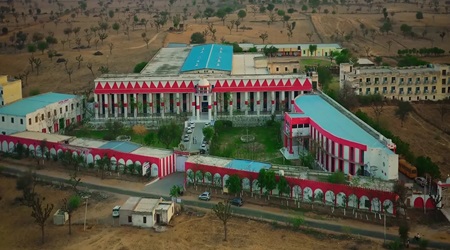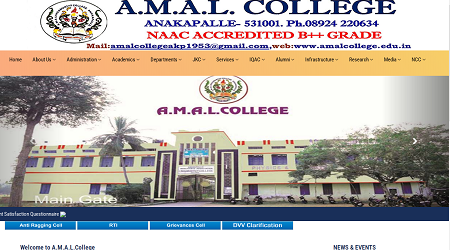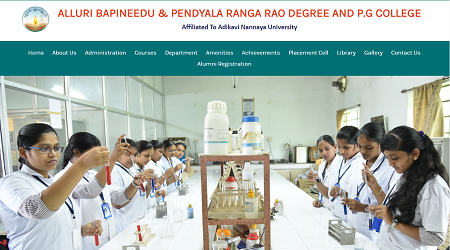PhD in Life Science Synopsis, thesis and paper writing service
PhD in Life Science admission PhD in Life Science admission 2023 PhD in Life Science application deadline is degree from PhD in Life Science valid PhD in Life Science courses PhD in Life Science fees PhD in Life Science entrance exam 2023 PhD in Life Science fee structure PhD in Life Science review PhD in Life Science student verification how can i get in admission in PhD in Life Science PhD in Life Science admission age limit PhD in Life Science admission application form PhD in Life Science admission advertisement PhD in Life Science admission brochure PhD in Life Science admission criteria PhD in Life Science admission consultants PhD in Life Science admission documents required PhD in Life Science admission details PhD in Life Science admission eligibility PhD in Life Science admission entrance exam PhD in Life Science admission fees PhD in Life Science admission guidelines by ugc PhD in Life Science admission guidance PhD in Life Science admission help PhD in Life Science admission last date PhD in Life Science admission latest notification PhD in Life Science admission news PhD in Life Science admission online PhD in Life Science admission process PhD in Life Science admission percentage PhD in Life Science admission qualification PhD in Life Science admission questions PhD in Life Science entrance question paper PhD in Life Science admission without entrance basic requirements for PhD in Life Science in Admission Part Time PhD in Life Science in admission Full Time PhD in Life Science in admission PhD in Life Science admission Form pdf PhD in Life Science Syllabus PhD in Life Science Syllabus pdf admission PhD in Life Science PhD in Life Science admission Helpline PhD in Life Science admission Contact Details PhD in Life Science admission Registration PhD in Life Science Direct Admission is PhD in Life Science Degree Valid in Abroad PhD in Life Science admission Important Dates Eligibility Criteria for PhD in Life Science in admission PhD in Life Science Entrance Exam Pattern PhD in Life Science admission 2024-25 PhD in Life Science entrance exam 2024-25Doctor of Philosophy or Ph.D. (Life Science) programmes last three to five years and are designed to educate students for research in biology, ecology, evolution, and neuroscience. A Master's degree in the relevant field with a minimum cumulative GPA of 55% is the prerequisite for applying to the programme.
Entry into the programme is contingent upon competitors' master's-level accomplishments. Additionally, several government institutions conduct entrance exams to confirm admittance.
THREE_BUTTON
Choosing a Good Topic for Research
· Describe your field of interest for your PhD, which is most important. Refer to a reputed research journal to learn the most recent developments in your area of interest. Start a discussion about your chosen topics with experts and professors to learn more information. Nothing could possibly function without it.
THREE_BUTTON
Writing the Synopsis or Research Proposal
· Under the guidance of any one supervisor, the student is free to select any study topic. The subject should be related to real-world problems that the general public would find useful and appropriate. The synopsis must be submitted using the guidelines and recommended format. Make sure, if it's not too much difficulty, that the length of your overview corresponds to your research topic and the science that is introduced.
Writing an Effective Thesis or Dissertation
The thesis is how your research is organized and presented in an expert manner. Even if you might present your chapter(s) to different journals or other publication outlets in the future, your thesis should use the introduction and conclusion chapters to bookend a solid report and maintain consistency throughout all sections.
All theses presented as a part of the doctoral programme in life sciences should be formatted in accordance with the guidelines below:
· A section of the frontispiece that includes the title page, abstract, table of contents, and other introductory information.
· An introductory section that provides a thorough introduction to the thesis and any manuscripts it contains
· The thesis's body should have at least one more composition-style sections describing the findings of your research.
· A summary of the theory's broad significance in the final paragraph. Regarding the subject of the Life science programme, you should embrace your work and place the results into a more thorough "Life Context," putting an emphasis on the practical significance and expansion of your work.
· Supplemental information sections in the appendix or references (if necessary).
Eligibility
Candidates for Ph.D. admission must have a post-graduate degree in Life Science or a closely related field with at least 55% of the required marks from an accredited university and must have completed the university- or national-level entrance exam. UGC NET, UGC CSIR NET, GATE, SLET, and other national-level admission examinations, as well as university entrance examinations that include written tests and personal interviews
The Benefits
The truth is that a Ph.D. in life science has many advantages despite the misconception that earning one is like paying one's dues. You can network with prominent scientists and enjoy the intellectual independence that is essential to any job. On the other hand, you run the risk of undervaluing yourself and forgoing your personal life. It can be challenging to find the time to complete graduate school, which can last anywhere between four and eight years.
A Ph.D. in life science will benefit you financially and aid in job placement. Even more so in the field of life science, it's not always simple but it can be a worthwhile attempt. You'll discover a lot about research techniques and become acquainted with the key figures in the sector. A Ph.D. will also help you advance in your profession, which will increase your employment alternatives.
Since 1970, the typical length of a life science Ph.D. has increased by more than two years. In recent years, that number has risen to nearly 60%. Additionally, it is getting harder to find a solid job after finishing graduate school in life science. However, even though the unemployment rate for PhDs in the subject has increased, there are still a lot of opportunities outside of academia. After earning your Ph.D., you can get a fantastic job as long as you're ready to put in the effort.
Career and Job Opportunities
Many Ph.D. holders believe that academia is their sole viable job path. However, there are other industry positions open, notably in biotech and pharma. The advantages of working in the industry after receiving a Ph.D. are covered in this article. Before applying for a job, it's a good idea to have a Ph.D. in life science. By doing this, you may be certain that the vocation you choose is worthy.
Not everyone who earns a Ph.D. in life science intends to continue in academia. Even though some people adore science, others are sick of it. Others might only want to work in a different industry. These people no longer have access to as many job opportunities as they once had.
THREE_BUTTON
A Ph.D. in life sciences opens up a wide range of job options. Some select a profession in the lab, while others choose for one outside of it. There are a few more possibilities available for those who are not interested in research. The school's School of Life Sciences provides Ecology and Evolutionary Biology, Cell and Molecular Biology, Microbiology, and two other sectional research foci.
Latest News & Updates
- GLA University Phd in Education Admission 2024-25, Fees and Research Assistance
- GLA University Phd in Management Admission 2024-25, Fees and Research Assistance
- GLA University Phd in Pharmacy Admission 2024-25, Fees and Research Assistance
- GLA University Phd in Mathematics Admission 2024-25, Fees and Research Assistance
- GLA University Phd in English Admission 2024-25, Fees and Research Assistance
- GLA University Phd in Chemistry Admission 2024-25, Fees and Research Assistance
- GLA University Phd in Physics Admission 2024-25, Fees and Research Assistance
- GLA University Phd in Microbiology & Immunology Admission 2024-25, Fees and Research Assistance
- GLA University Phd in Biotechnology Admission 2024-25, Eligibility, Fees and Guidelines
- GLA University Phd in Civil Engineering Admission 2024-25, Fees and Research Assistance
Top Courses
- BACHELOR OF SCIENCE IN AGRICULTURE
- Bachelor of Dental Surgery
- BACHELOR OF ARTS IN ANCIENT HISTORY
- BACHELOR OF HOTEL MANAGEMENT
- Bachelor of Arts
- BACHELOR OF ARTS IN AIRLINES, HOSPITALITY AND CUSTOMER CARE
- DOCTOR OF PHILOSOPHY IN DRAMATICS
- BACHELOR OF LEGISLATIVE LAW
- BACHELOR OF COMPUTER APPLICATIONS
- BACHELOR OF ARCHITECTURE





















